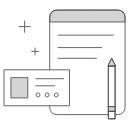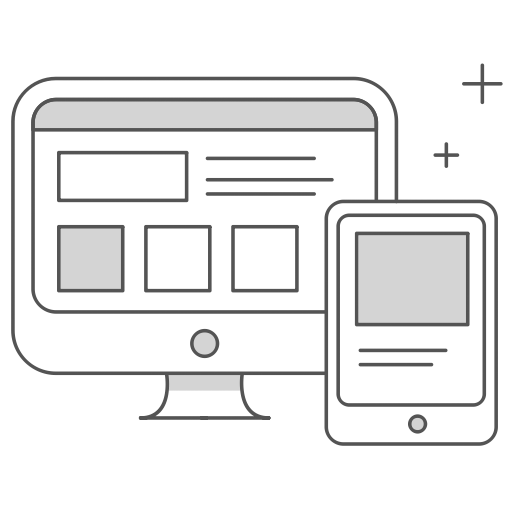"My name is LaTonya Bynum, MPH, CHES. I have over 20+ years of combined experience in Retail Sales, Public Health and Health Information Technology within both private sector and state government settings.
With over 5 years of professional experience in serving as the CEO and Founder of URA Resource Center, LLC, I am ready to assist you with your certified community health worker technical assistance and documentation needs."
Your Personal and Professional Story Will Inspire The Community:
Ready to Take A Leap of Faith?
For assistance with your documentation then email LaTonya Bynum, MPH, CHES at: info@latonyabynum.com - include subject line "CCHW Request for Documentation Technical Assistance".
Top 10 Why's For Community Health Workers
1. Community Health Workers have a story to tell which will inspire the community 1 at a time.
2. Community Health Workers are the boots on the ground and have the trust of the community
3. Community Health Workers listen, engage and understand the community and their struggles
4. Community Health Workers have access to evidenced based programs, services and resources tailored for the community
5. Community Health Workers offer tailored solutions based on the evidence of what works best
6. Community Health Workers are the voice for the voiceless who tend to suffer in silence
7. Community Health Workers encourages the community to see health as a way of life
8. Community Health Workers use their spirit, energy and discernment to empower the community
9. Community Health Workers generate 7+ streams of income by bartering, trading and investing
10. Community Health Workers innovate the field of public health by listening, learning and leading
Bonus: Community Health Workers role model self care as an example of true wellness
Top 10 Advocacy Training Programs
- Overview: The goal of this course is to introduce the role religion plays in public health. During this course, participants will:
- Understand how worldview impacts cultural distance
- Understand that a majority of people have strong supernatural beliefs that can be used to change risky behaviors
- Describe the basic beliefs of naturalism, monotheism, tribal cultures, monism, and traditional Chinese cultures
- Understand the benefits and challenges of the concept of primary prevention with different cultural worldviews
- Review a few examples of how religiosity impacts healthy behavior
- Review key results of a SWOT survey of faith-based leaders
- Describe the importance of horizontal communicators
- Discuss the importance of addressing perceived needs in faith-based engagement
- Discuss the importance of first dealing with spiritual fatalism before engagement
- Review leadership skills for faith-based engagement
- Overview: Learn how your clergy and/or leaders can recognize the signs of suicide prevention, enroll in mental health training for your clergy, and obtain information on Veterans Health Administration’s (VHA) vision to provide appropriate individualized health care to each Veteran in a way that eliminates disparate health outcomes and assures health equity.
- Link: https://www.train.org/texas/course/1072717/
- Description: In this online module, learners will examine how policy becomes law and the “nuts and bolts” of advocacy that influence legislators.
- Link: https://www.train.org/texas/course/1015166/
- Overview: The goal of the web-based course is to educate individuals on how the protections provided by the US Constitution must be considered when responding to public health threats. Individuals who complete the training will be able to describe the role law plays in emergency preparedness and response as well as understand the need to balance disease control powers and individual liberties by weighing scientific evidence and protecting the rights and wellbeing of the public.
- Link: https://www.train.org/texas/course/1063977/
- Overview: This course is an introduction to public health law in the United States. Although it is designed for professionals who work in public health agencies, the first modules introduce the basic fundamentals of law and the legal system in the US which are the same no matter what the core subject area of law is to be studied.
Module One introduces the sources of law, including the US and state constitutions, federal and state legislation, and federal and state judicial opinions, and the interplay among them. There is discussion of the sections of the US Constitution and amendments often cited as most applicable to the public health law arena.
Module Two introduces the roles and powers of federal and state administrative agencies, including the process for promulgation of administrative rules and regulations, enforcement, and administrative hearings.
Module Three is more specific to public health and discusses the difficulties in determining which laws can be considered as “public health” laws and regulations, as well as the provisions in federal and state laws that apply to the health and welfare of the public in general rather than to laws governing the health of individuals and delivery of services to individual patients. Also included is discussion of the powers of the federal and state governments in arena of public health. Balancing the rights of the individual against the rights of the population is included.
Module Four discusses governmental powers in the case of emergency; the specific context of bioterrorism is used as the exemplary base for discussion.
Finally, Module Five discusses the basics of the issue of public health information and privacy. Included are the Health Insurance Portability and Accountability Act (HIPAA) and the responsibilities of public health agencies and employees in receipt and use of protected health information. Throughout the course, principles such as federalism and preemption and others are included. Examples of model public health legislation are also cited.
- Overview: In today’s quickly changing, dynamic, and sometimes-volatile health care environment, negotiation skills are more important than ever before. In this course, participants will learn how to negotiate better agreements and resolve conflicts more effectively, while developing better inter-professional relationships in the process. Other specific topics include: selecting the best negotiation style, how to use time techniques effectively, ways to uncover the other party’s hidden agenda, how to neutralize emotionalism, the secret to protecting oneself against poor agreements, how framing and anchoring strategies can help get better outcomes, and when and how to make creative solutions, compromises and concessions. A proven six-step negotiation process is central to this course.
- Link: https://www.train.org/texas/course/1012710/
- Overview: In 1935, Title V of the Social Security Act established a federal-state partnership to address the needs of the maternal and child health population. Over the years, though changes have occurred, Title V remains the oldest federal program dedicated to the health of all mothers and children. Strong leadership and advocacy skills are critical to the program’s success. Program faculty discussed national trends in maternal and child health, national leadership for MCH, current challenges and opportunities, and future directions
- Link: https://www.train.org/texas/course/1027678/
- Overview: The goal of this course is to define advocacy and why it’s an important tool for public health. During this course, participants will:
- Define advocacy and why it’s an important tool for public health
- Discuss pre-advocacy work
- Review the four steps of initiating an advocacy effort
- Emphasize the importance of casting a compelling vision
- Review the eight planning steps for developing an advocacy group
- Briefly introduce the concept of strategic mapping
- Overview: Collaboration between Title V Maternal and Child Health Programs and family leaders provides a “win-win” opportunity to leverage programmatic expertise with families as an action arm for advocacy. Program faculty will discuss appropriate roles for family advocates and describe the nuts and bolts structure and organization for how Title V programs can meaningfully operationalize their involvement. Faculty will also include a discussion of the skills and training family advocates need to be successful as well as examples of successful models for partnership between family advocates and Title V Maternal and Child Health Programs.
- Link: https://www.train.org/texas/course/1032695/
- Overview: This session, designed for advocates, is an overview of victims’ rights laws, and an identification of common issues that victims face as they are forced to navigate the criminal justice system. Rebecca Khalil, NCVLI Staff Attorney, and Karla Salp, a victim advocate, discuss the state of victims’ rights laws nationally, identify the most common stages in a criminal proceeding where victims’ rights are at risk, discuss how advocates can protect these rights without crossing the line into unlawful practice of law, and explore how advocates and attorneys can best work together to enforce and advance victims’ rights.
- Link: https://www.train.org/texas/course/1086113/
Overview: This webinar has been designed as an inter-professional training for all healthcare providers. Nurses, pharmacists, and doctors, both in practice and in training, as well as PA’s, MA’s, front desk staff, receptionists, and other staff can benefit from learning about improving cultural competency skills and practices though identifying and removing potential roadblocks to care experienced by patients from different population groups. This webinar focuses on the Culturally and Linguistically Appropriate Services (CLAS) standards of the US Department of Health and Human Services (HHS) Office of Minority Health (OMH), health disparities, and a skills-based approach to culturally competent care: the ASCN model (Ask, Share, Compare and Negotiate).


Top 10 Communication and Education Training Programs
- Summary: Service providers seek to understand what motivates clients to change and improve their health. Approaches that use evidence-based practices have been developed, tested, and known to work to motivate clients for positive health behavior change.
- Summary: This course introduces participants to the fundamentals of crisis management. It presents a framework that clearly shows the critical activities and programs all organizations need to have in place before, during, and after major crises. It allows participants to analyze their own organizations with regard to how well prepared they are for major crises.
- Link: https://www.train.org/texas/course/1030510/
- Summary: “Communicate to Make a Difference: Practicing Cross-Cultural Communication” is a collection of case studies that examine the practical application of the “Ten Strategies for Effective Cross-Cultural Communication,” as described in the “Exploring Cross-Cultural Communication” training. There are many facets of organizational culture. It is the awareness of these facets and how communication can affect an organization that is the focus of the “Community Health Worker Program” module. How can three different groups overcome communication challenges to work together?
- Link: https://www.train.org/texas/course/1064378/
- Summary: This cyber-seminar will explore the researcher and practitioner perspective of Body & Soul: A Celebration of Healthy Eating and Living, an evidence-based intervention that promotes healthy eating and physical activity through African American churches. During this interactive session presenters will offer their perspective on the research and testing that went into developing Body & Soul, along with the adaptation and implementation of the program at the community level. The Washington University Cancer Prevention & Control Research Network (CPCRN) will demonstrate how they moved the Body & Soulprogram from “research to reality” though the development of Faith Communities Joined for Health (FCJH), a consortium designed to build capacity, leverage resources, and provide technical assistance. Through the implementation of the program, the FCJH seeks to reduce cancer disparities affecting African Americans in St. Louis by empowering churches to encourage healthy lifestyle habits among its members and communities.
- Link: https://www.train.org/texas/course/1032855/
- Summary: This session focuses on improving communication with patients. A few key techniques, such as patient agenda setting, identifying an action plan, and “show back” are described in detail for you to test in your practice.
- Link: https://www.train.org/texas/course/1080913/
- Summary: The Community Leadership course requires 1 hour. You will complete reflection activities on leadership, watch videos about leadership, read about characteristics of effective leaders, and most importantly, think about how you would apply these leadership principles in your work.
- Link: https://www.train.org/texas/course/1078071/
- Summary: This course from the Home Health Quality Improvement National Campaign(HHQI) will explore several key areas including: measurement, navigation, verbal/written communication, and evaluation. Information about the significance of health literacy as well as actions to address various barriers will also be discussed.
- Link: https://www.train.org/texas/course/1082961/
- Course Summary: Have you ever found yourself in a conflict, either professional or personal, with no idea how to get out of it without simply surrendering or fighting back? Just how is it that conflict seems to arise so often? With all the attention that “win-win” approaches get these days, is collaboration always the best way to resolve differences? Is there an element that is common to both collaborating with partners and resolving differences with them? This broadcast included a discussion of conflict, conflict resolution, and collaboration, and how they are all tightly related. Conflict is all around us, in all aspects of our lives. It seems to be inherent in our culture and perhaps in just being human. While it’s easy to create conflict, resolving it often defies our abilities. And yet there are some basic principles one can apply in both preventing conflict and in contributing positively to its resolution once conflict arises. This broadcast provided a very innovative look at conflict, why it arises, and what can be done to resolve it. Also discussed was collaboration, how it represents ONE approach to conflict resolution, and why it is an essential competency in public health practice.
- Link: https://www.train.org/texas/course/1027451/
- Course Summary: This course describes essential strategies to improve effectiveness when dealing with all types of interpersonal and group conflicts that may be experienced with co-workers, bosses, and employees in the workplace. With the right strategies, even conflict-avoiders and in-your-face confrontational types will learn ways to increase their chances of achieving win-win outcomes, while improving interpersonal communication in the process.
- Link: https://www.train.org/texas/course/1012712/
- Course Summary: Mediation is at the core of dispute resolution. By educating and helping people to resolve conflict, their quality of life is enhanced and as well as that of their family, friends, neighbors and co-workers. The Mediation Center of the Pacific, Inc. provides Hawai’i residents with peaceful approaches to working through conflict through programs and processes that meet the unique needs of Hawai’i’s culturally diverse population.
- Link: https://www.train.org/texas/course/1080433/
Summary: Describe the role of health literacy and cultural competency within the delivery of healthcare. Identify ways the Medicaid system can be a partner in improving the health of the community. Recognize approaches to improve effectiveness of services and thereby help reduce health inequities.
Top 10 Foundations of Health Training Programs
- Summary: This course was developed with specific focus on the long-term care
setting. This educational activity will focus on the correct selection, use, and
disposal of PPE to be used to support facility-specific infection policies and
procedures. Also available in Spanish translation and contains audio.
Link:
- Summary: This course was developed with specific focus on the long-term care
- Summary: This course introduces participants to the fundamentals of crisis management. It presents a framework that clearly shows the critical activities and programs all organizations need to have in place before, during, and after major crises. It allows participants to analyze their own organizations with regard to how well prepared they are for major crises.
- Link: https://www.train.org/texas/course/1030510/
- Summary: “Communicate to Make a Difference: Practicing Cross-Cultural Communication” is a collection of case studies that examine the practical application of the “Ten Strategies for Effective Cross-Cultural Communication,” as described in the “Exploring Cross-Cultural Communication” training. There are many facets of organizational culture. It is the awareness of these facets and how communication can affect an organization that is the focus of the “Community Health Worker Program” module. How can three different groups overcome communication challenges to work together?
- Link: https://www.train.org/texas/course/1064378/
- Summary: This cyber-seminar will explore the researcher and practitioner perspective of Body & Soul: A Celebration of Healthy Eating and Living, an evidence-based intervention that promotes healthy eating and physical activity through African American churches. During this interactive session presenters will offer their perspective on the research and testing that went into developing Body & Soul, along with the adaptation and implementation of the program at the community level. The Washington University Cancer Prevention & Control Research Network (CPCRN) will demonstrate how they moved the Body & Soulprogram from “research to reality” though the development of Faith Communities Joined for Health (FCJH), a consortium designed to build capacity, leverage resources, and provide technical assistance. Through the implementation of the program, the FCJH seeks to reduce cancer disparities affecting African Americans in St. Louis by empowering churches to encourage healthy lifestyle habits among its members and communities.
- Link: https://www.train.org/texas/course/1032855/
- Summary: This session focuses on improving communication with patients. A few key techniques, such as patient agenda setting, identifying an action plan, and “show back” are described in detail for you to test in your practice.
- Link: https://www.train.org/texas/course/1080913/
- Summary: The Community Leadership course requires 1 hour. You will complete reflection activities on leadership, watch videos about leadership, read about characteristics of effective leaders, and most importantly, think about how you would apply these leadership principles in your work.
- Link: https://www.train.org/texas/course/1078071/
- Summary: This course from the Home Health Quality Improvement National Campaign(HHQI) will explore several key areas including: measurement, navigation, verbal/written communication, and evaluation. Information about the significance of health literacy as well as actions to address various barriers will also be discussed.
- Link: https://www.train.org/texas/course/1082961/
- Course Summary: Have you ever found yourself in a conflict, either professional or personal, with no idea how to get out of it without simply surrendering or fighting back? Just how is it that conflict seems to arise so often? With all the attention that “win-win” approaches get these days, is collaboration always the best way to resolve differences? Is there an element that is common to both collaborating with partners and resolving differences with them? This broadcast included a discussion of conflict, conflict resolution, and collaboration, and how they are all tightly related. Conflict is all around us, in all aspects of our lives. It seems to be inherent in our culture and perhaps in just being human. While it’s easy to create conflict, resolving it often defies our abilities. And yet there are some basic principles one can apply in both preventing conflict and in contributing positively to its resolution once conflict arises. This broadcast provided a very innovative look at conflict, why it arises, and what can be done to resolve it. Also discussed was collaboration, how it represents ONE approach to conflict resolution, and why it is an essential competency in public health practice.
- Link: https://www.train.org/texas/course/1027451/
- Course Summary: This course describes essential strategies to improve effectiveness when dealing with all types of interpersonal and group conflicts that may be experienced with co-workers, bosses, and employees in the workplace. With the right strategies, even conflict-avoiders and in-your-face confrontational types will learn ways to increase their chances of achieving win-win outcomes, while improving interpersonal communication in the process.
- Link: https://www.train.org/texas/course/1012712/
- Course Summary: Mediation is at the core of dispute resolution. By educating and helping people to resolve conflict, their quality of life is enhanced and as well as that of their family, friends, neighbors and co-workers. The Mediation Center of the Pacific, Inc. provides Hawai’i residents with peaceful approaches to working through conflict through programs and processes that meet the unique needs of Hawai’i’s culturally diverse population.
- Link: https://www.train.org/texas/course/1080433/
Summary: Describe the role of health literacy and cultural competency within the delivery of healthcare. Identify ways the Medicaid system can be a partner in improving the health of the community. Recognize approaches to improve effectiveness of services and thereby help reduce health inequities.


Top 10 Professional Responsibility Training Programs
- Summary:
- Medical records are subject to privacy and confidentiality. This webinar will explore existing regulations and Health Insurance Portability and Accountability Act (HIPAA) as it relates to patient information. As we embark on the age of highly efficient technological capabilities, the ability to protect medical records has many challenges.
Building public trust brings awareness to how privacy and confidentiality are properly handled through the course of research or student projects. We will discuss general aspects centered on the sensitive subject of cyberspace and medical record security. Recommendations based on the laws that govern privacy, along with research findings, will be shared.
- Summary:
- Summary: This training:
- Introduces the concept of the Competing Values Framework
- Describes the often-competing roles associated with being an effective supervisor
- Explains the levels of mastery of a skill
- Provides strategies for assessing and monitoring your progress through the levels of supervisory mastery
- Link: https://www.train.org/texas/course/1064382/
- Summary: This webinar will provide practical tips and strategies for improved threat awareness and self-protection during field work, focused on workplace violence risk. Quick, effective stress management techniques, such as specialized breathing will also be provided. These tools can aid in increasing awareness and safety as well as de-escalation.
- Link: https://www.train.org/texas/course/1087768/live_event
- Summary: Prioritization and time management are critical skills for success. Managing your time means that you spend time on your priorities, and that you do not waste time on non-priorities. This training presents time management and prioritization techniques to improve the work activities of local health departments.
- Link: https://www.train.org/texas/course/1078202/
- Summary: Professionalism is so important that the Association of Schools of Public Health built it into the competency model for aspiring Master of Public Health students and the Public Health Leadership Society Code of Ethics included professional competence as one of its 12 principles. Professionalism is very important for new public health workers and for students working towards their MPH degree. We have interviewed experts in the field and worked with a variety of public health professionals to come up with realistic situations and scenarios for you to explore.
- Link: https://www.train.org/texas/course/1046766/
- Summary: As health departments prepare to apply for PHAB accreditation, the standards and measures are the framework for evaluating the health department’s processes, services, and outcomes, and their progress toward goals and objectives. This module will give health department leaders, governance, Accreditation Coordinators, and accreditation teams a beginning base of knowledge about how the Standards and Measures are structured and an idea about the documentation required to meet the standards and measures.
- Link: https://www.train.org/texas/course/1030978/
- Summary: Social media has become a great way to connect with people, but in the healthcare profession, social networking can often blur the ethical lines in a patient-provider relationship. Postings on Facebook and similar sites have cost some healthcare professionals their jobs and some others have even lost their license to practice. Program faculty will explore the issues which make social media a potential liability for healthcare providers and discuss ways to teach professionals how to avoid the misuse of this new media.
- Link: https://www.train.org/texas/course/1048333/
- Course Summary: Emergencies create limited resources needing efficient allocation and the need to evenly distribute burden and benefit. Due to the limited number of resources available in an emergency response, not all individuals will be able to receive the same treatment. This limitation poses many ethical considerations to be made including who and when to evacuate, and measures that can be made in order to minimize burden and maximize benefit. These tough decisions should be discussed before an emergency and developed into emergency operation planning.
- Link: https://www.train.org/texas/course/1042278/
- Course Summary:
- This training meets the requirements of the DOH Code of Ethics policy (DOHP 30-2). Additional training for supervisors will be provided through the Division of Administration’s Basic Supervisory Training Program. This course is based on Governor’s Executive Order 11-03.
To receive credit for completion, you must complete the test after the presentation.
- Link: https://www.train.org/texas/course/1085602/
- Course Summary: This training is designed to help educate Arkansas Department of Health (ADH) staff concerning HIPAA legislation, the proper use and disclosure of protected health information (PHI), the proper safeguards for confidential information including electronic protected health information (ePHI) or other confidential information), and highlights from ADH HIPAA Policies and Procedures. It is not intended to replace ADH Policies.
- Link: https://www.train.org/texas/course/1009552/
Summary: Business as usual is over, even in health care and public health. This course will challenge you to adopt a proactive stance to your work life. Faculty will provide insight on how to position yourself to not only survive but also thrive in this new world of work.
Top 10 Resource Training Programs
- Summary: This session, moderated by OVC Fellow, Tuyet Duong, and featuring
Yazmeen Hamza from WomanKind, Eria Myers from Pacific Asian Counseling
Services and David Steib from Ayuda, discusses the role language access plays in
providing appropriate and competent services for victims of human trafficking
who are deaf, hard of hearing, or those who have Limited English Proficiency
(LEP). Participants gain information on the importance of language access in
identifying and serving victims and identify tools and program models that
address the systemic barriers facing survivors of human trafficking who are deaf,
hard-of-hearing, or LEP.
- Summary: This session, moderated by OVC Fellow, Tuyet Duong, and featuring
- Summary: Individuals with disabilities or functional needs may have additional
needs before, during, and after a disaster. This training has been designed to
familiarize the public health workforce professional with the differential needs of
this population and how to develop strategies for a more effective response during
a disaster. - Link: https://www.train.org/texas/course/1042176/
- Summary: The session highlights how some agencies have forged creative and strategic partnerships with hotel brands, local public housing authorities, and federal agencies to streamline and expand access to emergency and long-term shelter resources on behalf of trafficking survivors. This webinar features presentations from the National Human Trafficking Resource Center (NHTRC), and the U.S. Department of Housing and Urban Development (HUD), about plans for an upcoming pilot program in Chicago, IL which will designate up to 60 vouchers for survivors of trafficking to access housing in the private market.
- Link: https://www.train.org/texas/course/1085124/
- Summary: This training will increase knowledge about how adolescents access health information, enable participants to identify considerations in creating a social media outreach strategy, and provide tools and guidance to create a safe and engaging social media presence. After completing this online training, participants will be able to:
- Describe trends in adolescent health information seeking behavior
- Define social marketing and its relevance in a new media landscape
- List key considerations and potential pitfalls involved in the creation of engaging social marketing content Registration for this free, 45-minute course, is on the Cardea Services website.
- Link: https://www.train.org/texas/course/1079101/
- Summary:
- You know the physical threat that COVID-19 presents to your patients and to you. The less recognized and acknowledged challenges are the ethical dilemmas that this crisis poses and the moral distress that follows.
Presented by two nurse ethicists who are working every day to help nurses navigate these challenges, this on-demand webinar will provide insights and tools for how to cope with these difficult aspects of the pandemic.
Using a COVID-19 based case study approach, topics include:
- How to manage the transition in standards of care from conventional to contingency to crisis standards of care
- Ethical principles in action: Strategies for managing scarce resources
- Moral Distress, the pandemic and you: How to survive the darkest days
- What each and every individual nurse can and should do to take ethical care of their patients and care for themselves
- Link: https://www.train.org/texas/course/1091026/
- Objective: At the end of this section, participants will be able to recognize evidence-based recommendations to address barriers related to screening, testing, treatment, and care of HCV co-infected people of color living with HIV.
- Lessons
- Stigma (Authors: Henry Pacheco, MD; Rachel Galarza, MSHCM)
- Health Literacy (Authors: Henry Pacheco, MD; Rachel Galarza, MSHCM)
- Access to and Utilization of Health Care (Authors: John Nelson, PhD, CPNP; Veronica Jones, MPH, CHES; Elizabeth I. Lazo, MPH)
- Provider-Patient Interactions and Engagement in HIV/HCV Care (Authors: Veronica Jones, MPH, CHES; Elizabeth I. Lazo, MPH)
- Self-Care (Authors: Veronica Jones, MPH, CHES; Elizabeth I. Lazo, MPH)
- Lessons
- Link: https://www.train.org/texas/course/1075435/
- Summary: This online training discusses how inequalities in health information contribute to unequal treatment and health outcomes for some populations (health disparities) and what communities can do to close the gap and improve health literacy. Beyond Access:Inequalities in the generation, manipulation, and distribution of health information and the capacity to act on health information among social and cultural groups in the United States is discussed in an audio presentation by Dr. Kasiomayajula Viswanath. He is an Associate Professor in the Department of Society, Human Development, and Health at the Harvard School of Public Health. His research focuses on how inequalities in communication are associated with health disparities
- Link: https://www.train.org/texas/course/1014435/
- Objectives: Participants will be able to:
- Identify situations in which language interpretation is needed.
- Understand the SPEC+1 protocol for interviewing a patient through an interpreter.
- Anticipate and recognize possible cultural barriers to understanding.
- Work effectively with interpreters, whether they are physically present, or at a remote location (telephone or video)
- Objectives: Participants will be able to:
- Link: https://www.train.org/texas/course/1024964/
- Objectives for this module– At the completion of this 30-minute course, learners will be able to:
- Assure collaboration across sectors
- Share investment in implementation of the community health improvement plan
- Link: https://www.train.org/texas/course/1034996/
- Summary: Public health is no longer just what governmental agencies do and it is no longer advisable to think public health professionals have done their jobs in providing silos of programs. For states and communities to be successful in creating conditions in which people can be healthy in a sustainable way, collaboration is essential. Collaboration, we think we do it…. yet few actually do. This course covers why collaboration is essential to public health, how it differs from other strategies, what is needed for successful collaboration, what common pitfalls and challenges often occur and how to address them, as well as assuring results and keeping momentum. Additionally, it will cover resources available to support your efforts and the importance of celebrating successes and sharing the lessons learned. The course includes a workbook which contains exercises and content handouts to support the learner. This course will be extremely valuable to those involved in a community collaborative effort or those wanting to initiate one.
- Link: https://www.train.org/texas/course/1012393/
Overview: This video is a recording of Jon Ford speaking at the St. Luke’s Health Initiatives on September 25th, 2015. Mr. Ford discusses effective ways to share information and resources with your community through social media. He presents several important rules to follow when using social media and relates them to the example of encouraging uninsured Arizonians to sign up for health insurance.


ELECTIVE COMMUNITY HEALTH WORKER resources

Grant Writer >
Grant writers match organizations with leaders who desire to make a social impact

Resume Writer >
Equipping students, graduates, professionals, professors and entrepreneurs with resume, CV and cover letter templates and documentation to assist with marketing their skills, experience, personality, swag and education to the industry

Social Media Influencer >
Social media influencers share empowering tools, resources and stories to build character

Consultant >
A consultant provides expert advice based on learned experience, upbringing, failures and success

Public Speaker >
Speakers utilize Toastmaster International training and Liberating Structures techniques to engage, empower and educate small and large audiences

Book Author >
The Tools for Career Success: 101 FAQs about Public Health self-published book written and printed – consists of pages together along one side and bound in covers

Intern & Mentee >
Interns and mentors share resources, strategies and tools to empower professionals to innovate the field

Certified Health Education Specialist >
Mentor aspiring Certified Health Education Specialist (CHES) on strategies for passing the CHES exam
"tap into your Community Health Worker Resources"
It has never been easier to realize your untapped potential.
Join our internship or mentorship programs and start building the most wanted career available today. We make sure everything is easily understood, and that all students/mentees reach the same level of expertise needed for today’s hi-tech public health industry.
Working hours
Monday - Thursday 8:00 A - 3:00 P CST
(Phone/Text: +1. 501. 291. 8775)
We are here
Conway, Arkansas, USA
Phone:+01 501 291 8775
Website: www.latonyabynum.com
Email: info@latonyabynum.com
 LaTonya Bynum
LaTonya Bynum
- Black History Spotlight on Constance Jones, MSA: She Prays and Believes Enterprises and The Widow’s PromiseMeet Constance L. Jones, MSA in Administration, BS in Organizational Management Title and Name of Business: She Prays […]
- Black History Spotlight on Marquita Davis, MPH: The Black Patient ExperienceMarquita Davis, M.P.H is the founder/owner of “The Black Patient Experience” social advocacy page. A dynamic healthcare strategist and innovator, […]
- Global Health Program Design Excellence Spotlight: Alexandria Whitted, MPH (c)My name is Alexandria Whitted, and I am from Chadbourn, North Carolina. I am a passionate and charismatic young woman pursuing a Master of Public Health degree in Global Health Program Design, Monitoring, and Evaluation with an additional certificate in Sex, Sexuality, and Gender. In 2020, amid the COVID-19 pandemic, I became a first-generation college […]
- Women’s History Month Spotlight: Interview by Janisse Mitchell, MPHJanisse Mitchell, MPH is currently a student in the Doctor of Health Sciences program at Eastern Virginia Medical School (Class of 2021). She earned her Master of Public Health, Management and Policy degree from EVMS and Bachelor of Science degrees in both Public Health and Kinesiology from Shenandoah University. While attending graduate school, Janisse had the opportunity to visit the country of Moldova and assist them with making recommendations for a national Behavioral Risk Factor Surveillance Survey. She started her career as a fitness trainer, then worked as a Health Educator for over five years, and is currently a Senior Program Manager. She is a passionate Public Health Professional with years of experience in communication, customer service, research, health content writing, and data analysis. Janisse is a disease prevention and management advocate who seeks to improve others’ health while helping to improve access to healthcare services. Interview by Janisse Mitchell, MPH I had the pleasure of interviewing LaTonya R. Bynum, MPH, CHES for the Effective Information Technology for Healthcare Organizations course offered in the Doctorate in Health Science program at the University. Ms. Bynum is the founder and CEO at Utilize Research for Access (URA) Resource Center, LLC. As Ms. Bynum stated, she provides tailored resources to support communities using no-cost publicly accessible and secure systems to exchange health information to professionals, consultants, and government contractors. I was interested in interviewing her for several reasons. She has over 20 years’ experience in Health Information Technology, is an app developer, serves as a consultant, and has over 12 years’ experience as a Senior Analyst-Software Support Analyst working at the department of health. I also learned that she is a Technical editor that explains high-level thinking from the data and breaks it down into plain language for clients. Ms. Bynum started her career as a secretary to get her foot in the door at the department of health and discovered her passion for public health. Her areas of focus were needs assessment, statistics, and epidemiology. Later, she was promoted to the Senior Research Analyst position, where she found that two tools would help her in most in her career, the geographic information system, and SAS. Throughout her career, she has done numerous things such as managing program data, surveys like BRFSS, GIS maps, tracking obesity for each state, and analyzing retail sales for tobacco. She learned SAS with her mentors’ help and understood how to use the software effectively in her research. Ms. Bynum was able to use her experiences to guide others on practically using the tool. She recommends those learning SAS to use common sense and think of the statistics as real people. She stated that when you have tools and resources to dissect the data and visualize the trend, the data becomes more powerful. A major takeaway is to tell a story with the data. Moreover, Ms.Bynum noted that GIS is one of the most impactful tools she has used because she can explain the data to people on the map. She can draft out the map to show people where their community is regarding their health status and health ranking. Since Ms. Bynum is an app developer, I was interested in understanding her perspective on smartphone applications playing in healthcare. She believes that smartphones are changing how people access information and what types of info are now accessible. More developers and creators of apps like hers should consolidate all the information. They can give people the basics while giving people the foundational knowledge to learn more about certain topics. She also shared how privacy is becoming more and more important and how training employees to protect their privacy is vital. She mentioned that most people do not focus on it until something happens to them. She requires the volunteers at her organization is to take the HIPPA privacy training as part of the onboarding process. She feels like it is a priority to protect the information of those who use her app. I learned that the two most important things that help to innovate her business were the app with study tips for Health Educators and writing skills to publish books. In terms of social media, it is important to look at metrics to make informed decisions such as engagements, interactions, and comments. One comment I found particularly interesting is that she finds that the government vets the information more and is slower to sharing information publicly than the private sector. I learned from her that information should be accessible and user-friendly. Lastly, she feels that IT professionals should work smarter and not harder. Technology is about scaling things so you can work smarter! To connect with Janisse Mitchell, visit: https://www.linkedin.com/in/janissenmitchell/ To […]
- Black History Month Spotlight: Interview by Joréal Eady, BSPH (c)Joreal Eady was born and raised in Lawrenceville, Georgia. The young servant leader graduated from Discovery High School in 2017. […]
- Top 100 Remote Work Job Opportunities1. Live Ops- www.liveops.com 2. TeleTech- https://www.localjobster.com/company5?company=teletech 3. Amazon- https://www.amazon.jobs/en 4.Teleperformance- https://www.teleperformance.com/en-us/work-with-us/ 5. UnitedHealth Group- https://careers.unitedhealthgroup.com/ 6. Dell-http://jobs.dell.com/north-America-jobs 7. IBM- www.ibm.com/employment 8. U.S Department of Agriculture www.usda.gov […]
- 100 Things LaTonya Ratesa Bynum Can Help With As A Subject Matter Expert100 Things LaTonya Ratesa Bynum Can Help With As A Subject Matter Expert: 100. Mentorship 99. Career Advice 98. Business Development 97. […]
- Interview by University of South Dakota Student Asiah JacksonInterview with LaTonya Bynum, MPH, CHES -Speaker & Author – November 8th, 2019 by Asiah Jackson, Student at The University […]
- Top 10 Things I Wish I Knew Before Leading CHES Study Group SessionsTop 10 Things I Wish I Knew Before Leading CHES Study Group Sessions: 10. Direct aspiring CHES to supplemental readings […]
- CHES Exam Study TipCHES Study Tip: Focus on mastering the bulk of the exam which is Responsibility III – Implementation of Health Education […]